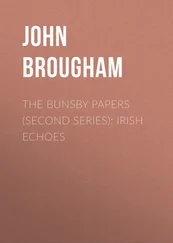George Foote - Flowers of Freethought (Second Series)
Здесь есть возможность читать онлайн «George Foote - Flowers of Freethought (Second Series)» — ознакомительный отрывок электронной книги совершенно бесплатно, а после прочтения отрывка купить полную версию. В некоторых случаях можно слушать аудио, скачать через торрент в формате fb2 и присутствует краткое содержание. Жанр: foreign_antique, foreign_prose, на английском языке. Описание произведения, (предисловие) а так же отзывы посетителей доступны на портале библиотеки ЛибКат.
- Название:Flowers of Freethought (Second Series)
- Автор:
- Жанр:
- Год:неизвестен
- ISBN:нет данных
- Рейтинг книги:5 / 5. Голосов: 1
-
Избранное:Добавить в избранное
- Отзывы:
-
Ваша оценка:
- 100
- 1
- 2
- 3
- 4
- 5
Flowers of Freethought (Second Series): краткое содержание, описание и аннотация
Предлагаем к чтению аннотацию, описание, краткое содержание или предисловие (зависит от того, что написал сам автор книги «Flowers of Freethought (Second Series)»). Если вы не нашли необходимую информацию о книге — напишите в комментариях, мы постараемся отыскать её.
Flowers of Freethought (Second Series) — читать онлайн ознакомительный отрывок
Ниже представлен текст книги, разбитый по страницам. Система сохранения места последней прочитанной страницы, позволяет с удобством читать онлайн бесплатно книгу «Flowers of Freethought (Second Series)», без необходимости каждый раз заново искать на чём Вы остановились. Поставьте закладку, и сможете в любой момент перейти на страницу, на которой закончили чтение.
Интервал:
Закладка:
This distinguished Frenchman is now dead at the comparatively early age of fifty-three. Although his illness was so serious, the French premier telegraphed that it would be impolitic for the Resident General to leave Tonquin suddenly. Thereupon Paul Bert replied, "You are right; it is better to die at my post than for me to quit Tonquin at the present moment." That dispatch was the last he was able to send himself. Subsequent dispatches came, from other hands, and at last the news arrived that Paul Bert was dead. The French premier announced the fact from the Tribune in a broken voice and amid profound silence. "The Chamber loses in him," said M. de Freycinet, "one of its eminent members, science an illustrious representative, France one of her most devoted children." The next day the Chamber, by an overwhelming majority, voted a State funeral and a pension of £400 a year to Mdme. Bert, with reversion to her children. The first vote was strenuously opposed by Monseigneur Freppel, Bishop of Angers, on the ground that the deceased was an inveterate enemy of religion, but the bishop was ignominiously defeated by 379 votes against 45. That is probably a fair test of the relative strength of Freethought and Christianity among educated men in France.
Monseigneur Freppel was right Paul Bert was an inveterate enemy of religion. He was a militant Atheist, who believed that the highest service you can render to mankind is to free them from superstition. No wonder the Church hated him. At a famous banquet he proposed the toast, "The eradication of the two phylloxeras – the phylloxera of the vine and the phylloxera of the Church." His handbook on the Morality of the Jesuits was a frightful exposure of the duplicity and rascality of priestcraft. About twelve months before Grambetta's death, that great statesman took the chair at one of Paul Bert's atheistical lectures. It was a bold thing to do, but Gambetta was a bold man. The great statesman did a bolder thing still when he took office. He scandalised the Christian world by appointing his atheistic friend Paul Bert as Minister of Public Instruction and Public Worship. Surely this was a piece of irony worthy the assiduous student of Rabelais and Voltaire. "Clericalism is the enemy," said Gambetta. Paul Bert accepted the battle-cry, but he did not content himself with shouting. He labored to place education on a basis which would make it a citadel of Freethought. The Tory Standard allows that he "laid the bases of military education in the schools and lycees " that he "first dispensed the pupils in State educational establishments from the obligation of attending any religious service, or belonging to any class in which religious instruction was given," and that he first organised the higher education of girls.
Paul Bert was a typical Frenchman and an illustrious Atheist. What do the clergy make of this phenomenon? Here is a man, trained by his father to hate priests, brought up from his cradle in an atmosphere of Freethought, and owing nothing to the Church; yet he becomes an eminent scientist, a fervid patriot, an educational reformer, a leading statesman, a tender husband and father, and a warm friend of the best men, of his time; and on his decease the State gives him a public funeral and provides for his widow and children. The man, we repeat, was an open, nay a militant Atheist; and again we ask, What do the clergy make of this phenomenon?
During his lifetime Darwin was the bete noir of the clergy. They hated him with a perfect and very natural hatred, for his scientific doctrines were revolutionary, and if he was right they and their Bible were certainly wrong. The Black Army denounced his impious teachings from thousands of pulpits. With some of them he was the Great Beast, with others Antichrist himself. And they were all the madder because he never took the slightest notice of them, but treated them with the silent contempt which a master of the hounds bestows on the village curs who bark at his horse's heels. Yet, strange to say, when Darwin died, instead of being buried in some quiet Kentish cemetery or churchyard, he was actually sepulchred in Westminster Abbey. Having fought the living Darwin tooth and nail, the clergy quietly appropriated the dead Darwin. The living, thinking and working man was a damnable heretic, hated of God and his priests, but his corpse was a very good Christian, and it was buried in a temple of the very faith he had undermined. Darwin, with all his gravity, is said to have loved a joke, and really this was so good a joke that he might almost have grinned at it in his coffin.
By and bye, the great naturalist may figure as an ardent devotee of the creed he rejected. The clergy are hypocritical and base enough – as a body we mean – to claim Darwin himself now they have secured his corpse. Who knows that, in another twenty years, the verger or even the Dean of Westminster Abbey, in showing visitors through the place, may not say before a certain tomb, "Here is the last resting-place of that eminent Christian, Charles Darwin. There was a little misunderstanding between him and the clergy while he lived, but it has all passed away like a mist, and he is now accounted one of the chief pillars of the Church"?
What the clergy have done in the concrete with Darwin they have done in the abstract with his predecessors in the great struggle between light and darkness. What are all the lying stories about Infidel Death-Beds but conversions of corpses? Great heretics, whose scepticism was unshaken in their lifetime by all the parson-power of the age, were easily converted in their tombs. What the clergy said about them was true, or why didn't they get up and contradict? All the world over silence gives consent, and if the dead man did not enter a caveat , who could complain if the men of God declared that he finished up in their faith?
Recently the clergy have been converting another corpse, but this time it has been able to protest by proxy, and the swindle has been exposed all along the line. Paul Bert, the great French Freethinker, died at Tonquin. The nation voted him a state funeral, and his body was shipped to France. The voyage was a long one, and it gave the pious an opportunity of leisurely converting the corpse, especially as Paul Bert's family were all on board the steamer. Accordingly a report, which we printed and commented on at the time, appeared in all the papers that the atheistic Resident General had sent for a Catholic bishop on his death-bed and taken the sacrament. Thousands of Christians believed the story at once, the wish being father to the thought. They never stopped to inquire whether the report was true. Why indeed should they? They took the whole of their religion on trust, and of course they could easily dispense with proof in so small a matter as an infidel's conversion. Some of them were quite hilarious. "Ha," they exclaimed, "what do you Freethinkers say now?" And with the childish simplicity of their kind, when they were told that the story was in all probability false, they replied, "Why, isn't it in print?"
Now that the fraud is exposed very few of the journals that printed it will publish the contradiction. We may be sure that the story of Paul Bert's conversion will be devoutly believed by thousands of Christians, and will probably be worked up in pious tracts for the spiritual edification of superstitious sheep. Give a lie a day's start, said Cobbett, and it is half round the world before you can overtake it. Give it a week's start, and if it happens to be a lie that suits the popular taste, you may give up all hope of overtaking it at all. First in the way of exposure was a telegram from the Papal Nuncio at Lisbon on December 29, saying that his name had been improperly used. He was not the author of the telegram that had been fathered on him, and he knew nothing of Paul Bert's conversion. A day or two later the ship conveying the heretic's corpse arrived at the Suez Canal. Madame Bert heard of the preposterous story of her husband's conversion, and she immediately telegraphed that it was absolutely and entirely false. Madame Bert, who is a highly accomplished woman, is a Freethinker herself, and she is too proud of her husband's reputation to lose a moment in contradicting a miserable libel on his courage and sincerity.
Читать дальшеИнтервал:
Закладка:
Похожие книги на «Flowers of Freethought (Second Series)»
Представляем Вашему вниманию похожие книги на «Flowers of Freethought (Second Series)» списком для выбора. Мы отобрали схожую по названию и смыслу литературу в надежде предоставить читателям больше вариантов отыскать новые, интересные, ещё непрочитанные произведения.
Обсуждение, отзывы о книге «Flowers of Freethought (Second Series)» и просто собственные мнения читателей. Оставьте ваши комментарии, напишите, что Вы думаете о произведении, его смысле или главных героях. Укажите что конкретно понравилось, а что нет, и почему Вы так считаете.












